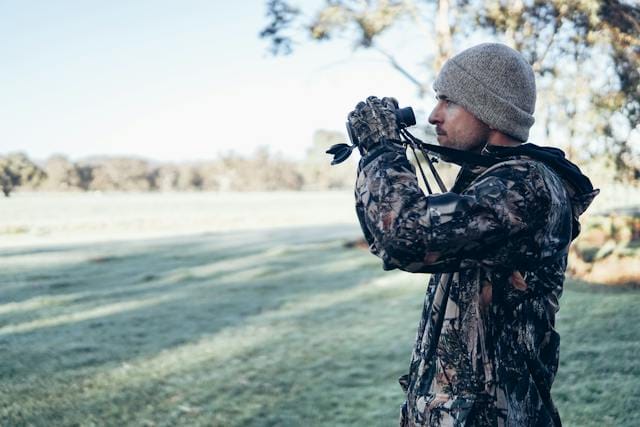Embarking on the journey of hunting as a beginner can be both exhilarating and challenging. This guide aims to provide essential tips and tricks for those new to the hunting scene, ensuring a safe, ethical, and successful experience. From understanding basic gear requirements to developing essential skills like tracking and marksmanship, these insights will serve as a foundational resource for beginners looking to explore the world of hunting. By embracing these tips, novice hunters can gain confidence, enhance their knowledge, and foster a deep appreciation for the outdoor pursuit of hunting.
1. Gear Essentials: Choosing the Right Equipment for Success
Embarking on the journey of hunting as a beginner involves careful consideration of gear essentials, particularly when it comes to choosing the right equipment for success. Among the crucial elements, investing in training bows stands out as an essential step for those new to hunting. Bows offer a user-friendly introduction, allowing beginners to hone their skills without the intimidation of more advanced equipment. It’s vital to select bows with adjustable features, ensuring a comfortable and personalized experience for each hunter. By prioritizing gear essentials like drill bows, beginners can build a solid foundation, enhancing their proficiency and overall success in the exciting world of hunting.
2. Safety First: Prioritizing Personal Safety and Ethics
Safety is a non-negotiable aspect of hunting that every beginner must prioritize. Familiarize yourself with firearm safety rules and guidelines, ensuring that you handle weapons responsibly. Understand the importance of wearing appropriate safety gear, including blaze orange clothing, to enhance visibility. Familiarize yourself with hunting laws, regulations, and ethical practices, respecting wildlife and the environment. Always inform someone about your hunting plans, including your expected return time and location. Prioritizing safety not only protects you and others but also contributes to responsible and ethical hunting practices.
3. Developing Tracking Skills: The Art of Reading Sign
Successful hunting requires the ability to track and interpret signs left by game animals. Learn to identify tracks, scat, and other signs that indicate the presence and behavior of your target species. Understand the significance of rubs, scrapes, and bedding areas in deciphering animal movement patterns. Developing tracking skills involves honing observation techniques, patience, and an understanding of animal behavior. Utilize field guides and online resources to familiarize yourself with the specific signs associated with the game you’re pursuing. Mastering the art of reading signs enhances your ability to locate and approach game animals effectively.
4. Sharpening Marksmanship: Accuracy and Precision in Every Shot
Marksmanship is a fundamental skill that every hunter must cultivate to ensure ethical and humane harvests. Regularly practice shooting at various distances to improve accuracy and precision. Familiarize yourself with the anatomy of the game animal you’re hunting to make effective and ethical shots. Utilize shooting aids such as shooting sticks or tripods for stability in different hunting scenarios. Understanding your firearm or bow’s effective range and limitations is crucial for making ethical and successful shots. Consistent marksmanship practice builds confidence, enhances shooting skills, and contributes to ethical hunting practices.
5. Patience and Persistence: Keys to a Successful Hunt
Hunting requires a substantial amount of patience and persistence. Be prepared for moments of waiting and stillness, as success in hunting often hinges on the ability to remain patient. Study the behavior and habits of the game you’re pursuing, adapting your approach based on their patterns. Embrace the reality that not every hunt will result in success, and setbacks are part of the learning process. Persistence involves continuous learning, adapting to changing conditions, and maintaining a positive mindset, even in the face of challenges. Patience and persistence are the virtues that transform a novice hunter into a seasoned and successful outdoors person.
Conclusion:
Navigating the world of hunting as a beginner involves a combination of acquiring the right gear, prioritizing safety and ethics, developing tracking and marksmanship skills, and embracing the virtues of patience and persistence. Beginners in hunting can embark on this exciting journey with confidence by understanding the importance of quality gear, prioritizing safety, mastering tracking skills, honing marksmanship, and cultivating patience and persistence. As you delve into the world of hunting, remember that every outing is an opportunity for learning and growth. By incorporating these tips and tricks, novice hunters can build a solid foundation for a fulfilling and ethical hunting experience.
